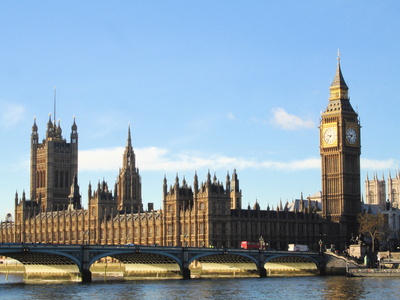News & what's on - Written by Barry & Richard on Tuesday, September 20, 2011 23:47 - 0 Comments
US style plea bargains not off the agenda in the UK
 We have written about the importance of certainty in the context of corporate prosecutions and the present scope for uncertainty in the UK.
We have written about the importance of certainty in the context of corporate prosecutions and the present scope for uncertainty in the UK.
After hearing the evidence of the Director of the SFO, at the hearing of the International Development Committee, Financial Crime and Development in July, Rosemary Davies, Legal Director Ministry of Justice gave evidence .
In an important exchange she confirmed:
“The Law Officers, the Attorney, the Advocate General and Solicitor General, are consulting now on their guidelines on plea discussions, and there will be further work in the context of the new National Crime Agency and the Economic Crime Command, which will look at new powers and will include things like deferred prosecutions.”
She went on to say that Deferred Prosecutions were an alternative to a conviction but noted that “There are lots of different ideas under the general heading of plea bargaining and deferred prosecutions…there are difficulties in fitting that into the British system.” and confirmed that “The possibility of having the judiciary involved at an earlier stage is all under discussion.”
During the same hearing in evidence Lord McNally of the Ministry of Justice commented that:
“In our system, it is not common to have the kind of plea bargaining that is common in the United States. Judges in the past have become very annoyed and made their views extremely clear about what they regard as pre-empting the court process.”
This is an argument which is often put up.
Namely that in the UK system the concept of a plea bargain is an anathema.
However, this is not strictly true.
A point which was made by none other than the House of Lords (the UK’s then highest appellate court) in the case of Gary McKinnon.
In the appeal against Mr.McKinnon’s extradition the point was made, broadly, that it would be an abuse of process, and an unjustified interference with human rights, to allow someone to be extradited from the UK to the US to face the allegedly unconscionable pressure of a suggested “plea bargain”.
Lord Brown of Eaton-under-Heywood had this to say on the subject of the UK system and plea bargains. It is illuminating when contrasted with some of the hyperbole which often surrounds the question:
“It is as well to recognise that the difference between the American system and our own is not perhaps so stark as the appellant’s argument suggests. In this country too there is a clearly recognised discount for a plea of guilty: a basic discount of one-third for saving the cost of the trial, more if a guilty plea introduces other mitigating factors, and more still (usually one-half to two-thirds but exceptionally three-quarters or even beyond that) in the particular circumstances provided for by sections 71 – 75 of the Serious Organised Crime and Police Act 2005 – see R v P; R v Blackburn [2007] EWCA Crim 2290. No less importantly, it is accepted practice in this country for the parties to hold off-the-record discussions whereby the prosecutor will accept pleas of guilty to lesser charges (or on a lesser factual basis) in return for a defendant’s timely guilty plea. Indeed the entire premise of the principle established in Goodyear [2005] 1 WLR 2532 is that the parties will have reached an agreed basis of plea in private before the judge is approached. What, it must be appreciated, Goodyear forbids are judicial, not prosecutorial, indications of sentence. Indeed, Goodyear goes further than would be permitted in the United States by allowing the judge in certain circumstances to indicate what sentence he would pass.”
This view was endorsed by Lord Scott of Foscote, Lord Phillips of Worth Matravers, Baroness Hale of Richmond and Lord Neuberger of Abbotsbury in the same appeal.
Mr. McKinnon’s appeal was dismissed.
We welcome the news that the government is reconsidering the issue of providing certainty in the context of corporate prosecutions in the UK and look forward to further detail from the Ministry of Justice and the Attorney General’s Office.
As we have said before, the present system can create an enforcement arbitrage which is of no benefit to UK PLC.


